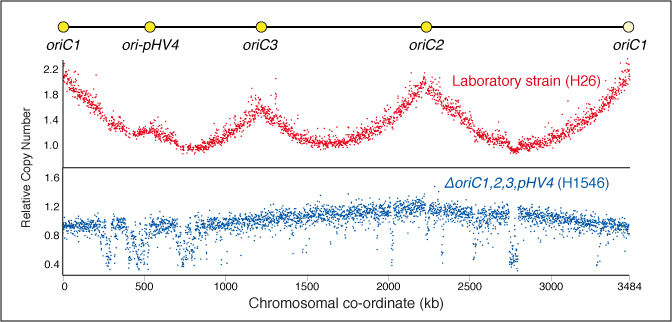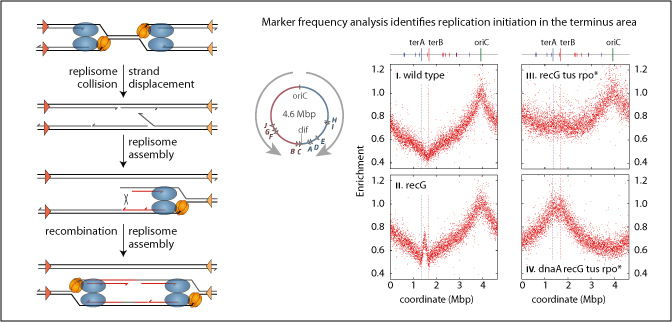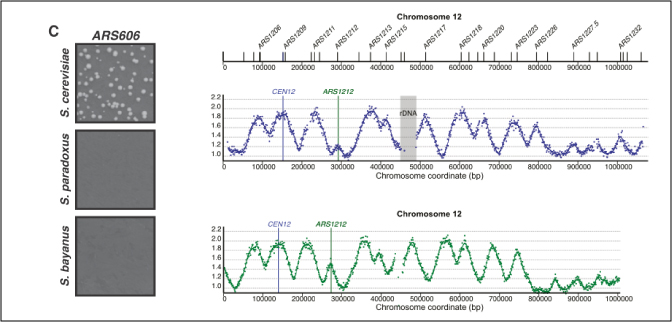Introduction
Complete, accurate replication of the genome is essential for life. All chromosomes in eukaryotic cells must be duplicated and then segregated to daughter cells to ensure genetic integrity and produce the large number of cells that make up a multicellular organism. We are using genetic, genomic and computational methods to understand how chromosome replication is regulated to ensure genome stability. By focusing on the basic biology that underpins cell growth and division we aim to provide new insights that may help our understanding of diseases such as cancer and congenital disorders.We have a PhD (DPhil) project available, 'DNA replication and genome stability' - application instructions.
Our recent publications
DNA replication timing influences gene expression level.
Müller & Nieduszynski (2017)
J. Cell Biol., 216(7):1907-1914
Deep functional analysis of synII, a 770-kilobase synthetic yeast chromosome.
Shen et al. (2017)
Science, 355(6329):
Discovery of an Unconventional Centromere in Budding Yeast Redefines Evolution of Point Centromeres.
Kobayashi et al. (2015)
Curr. Biol., 25(15):2026-33
A global profile of replicative polymerase usage.
Daigaku et al. (2015)
Nat. Struct. Mol. Biol., 22(3):192-8
The dynamics of genome replication using deep sequencing.
Müller et al. (2014)
Nucleic Acids Res., 42(1):e3




